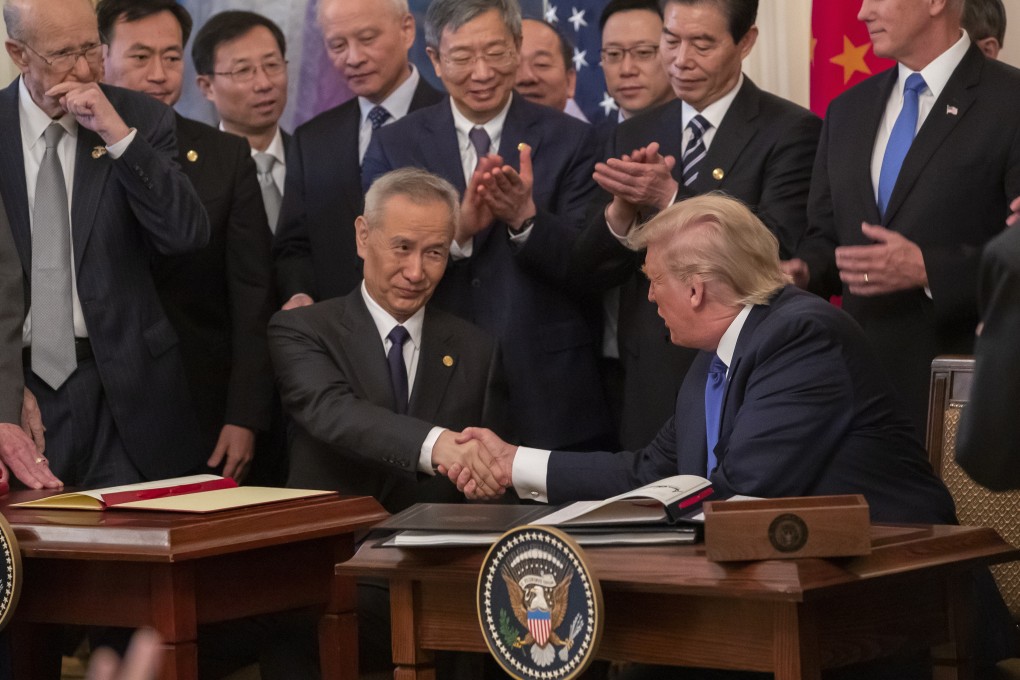Advertisement
Asean, RCEP trade partners unlikely beneficiaries from US-China trade war, Deloitte economist says
- An initial agreement for the Regional Comprehensive Economic Partnership (RCEP) was agreed in November 2019, and could be signed towards the end of 2020
- China and the US agreed their phase one trade deal on Wednesday in Washington, but the United States is not involved in the proposed regional trade pact
Reading Time:3 minutes
Why you can trust SCMP
0

An unexpected effect of the US-China trade war has been an apparent acceleration of the process to forge an Asian trading bloc that does not include United States, according to Deloitte China’s chief economist Xu Sitao.
After a renewed push from China, an initial Regional Comprehensive Economic Partnership (RCEP) agreement was finally reached in November 2019 after six years of talks, with the deal that would create the world’s largest free trade bloc possibly being signed in November 2020, according to China’s Ministry of Commerce.
It involves the 10-member Asean bloc plus Australia, China, Japan, New Zealand and South Korea, with India eventually deciding not to participate.
“The trade war has brought a positive effect … the RCEP, where you'd have previously thought would require many years to negotiate for. But unexpectedly, an agreement has been reached,” said Xu in Hong Kong this week, a day before the US and China signed their long-awaited phase one trade war deal. “Overall, everyone is concerned about economic growth.”
The trade war has brought a positive effect … the RCEP, where you'd have previously thought would require many years to negotiate for. But unexpectedly, an agreement has been reached
Since US President Donald Trump started to impose punitive tariffs on Chinese products in the middle of 2018, the likes of Taiwan, Japan and South Korea have benefited from reshoring, according to Xu, with companies relocating production back home to avoid tariffs placed on exports from China.
Vietnam and Indonesia have also benefited as alternative manufacturing locations to China.
Advertisement